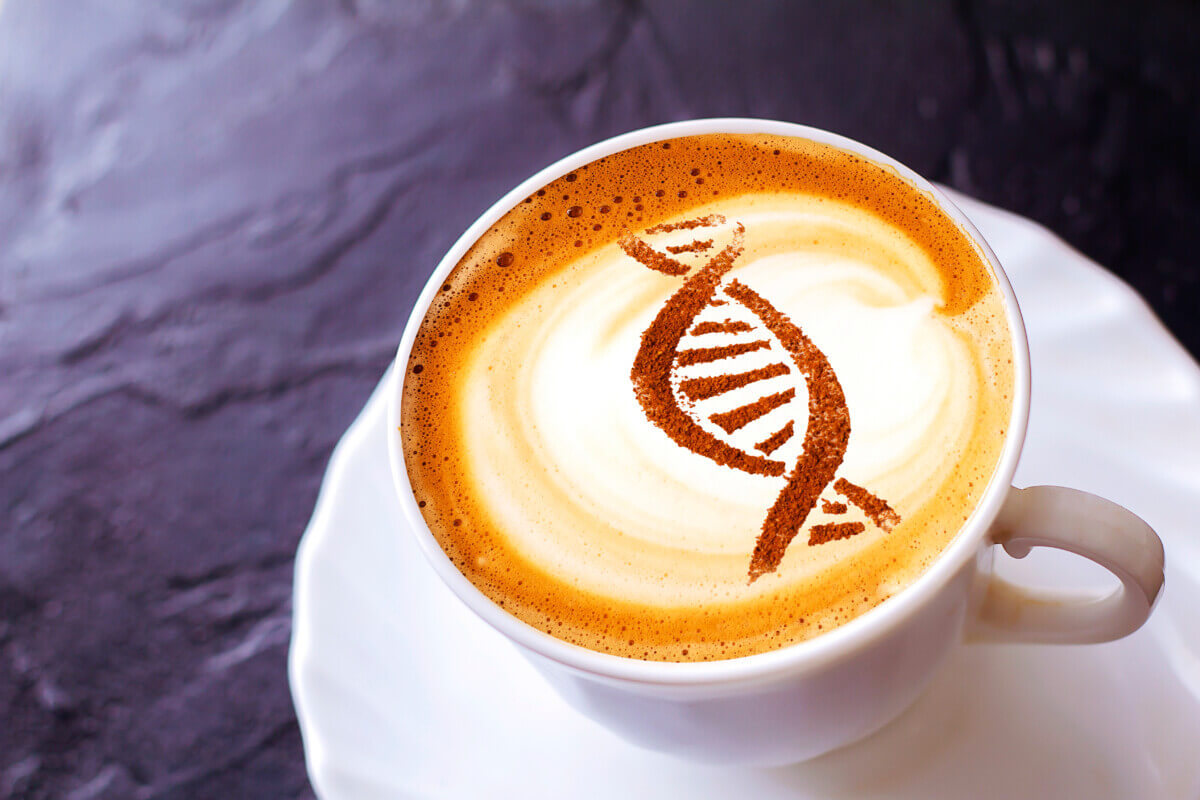
(Credit: ANTON URICH/Shutterstock)
LA JOLLA, Calif. — Do you start every morning with a strong cup of coffee, unable to really wake up without that caffeine jolt? Or do you avoid coffee altogether, finding that even just a few sips make you jittery and anxious? Scientists have been trying to figure out whether coffee is truly good or bad for years. Now, a new study published in Neuropsychopharmacology suggests the answer (and your coffee-drinking habits) may depend on your genes.
An international team of researchers has found evidence that there are specific genes that help determine just how much of a coffee drinker someone is and how it affects the body. To complicate matters, however, these genetic influences seem to interact with environmental and cultural factors in ways that can produce opposite outcomes in different groups. Simply put, whether coffee is good or bad may literally vary from person to person.
“We had good reason to suspect from earlier papers that there were genes that influence how much coffee someone consumes,” says Dr. Abraham Palmer, a professor of psychiatry at the UC San Diego School of Medicine, in a media release. “And so, we weren't surprised to find that in both of the cohorts we examined there was statistical evidence that this is a heritable trait. In other words, the particular gene variants that you inherit from your parents influence how much coffee you're likely to consume.”
Methodology: Popular Genetic Testing Company Helps Out
To unravel this genetic puzzle, the researchers conducted a genome-wide association study (GWAS) analyzing data from over 460,000 people in two large databases — 23andMe's database of over 130,000 Americans and the UK Biobank with over 334,000 British participants.
“We used this data to identify regions on the genome associated with whether somebody is more or less likely to consume coffee,” explains Dr. Hayley Thorpe, the study's lead author from Western University in Ontario. “And then identify the genes and biology that could underlie coffee intake.”
For each database, the researchers looked for correlations between genetic variants and self-reported coffee consumption habits from surveys. The 23andMe survey asked specifically about caffeinated coffee intake, while the UK Biobank survey inquired about coffee more generally, including decaffeinated drinks.

Results: Coffee Genes Have Various Impacts
The analysis revealed several intriguing findings. First, it confirmed a clear genetic component for coffee drinking, with certain genetic profiles being associated with higher or lower coffee consumption in both databases.
However, things got more complex when researchers looked at connections between these “coffee genes” and various health conditions and traits. In the data from 23andMe, genetic variants linked to higher coffee intake displayed a positive correlation with harmful conditions like obesity and substance abuse. This suggests coffee consumption driven by genetics could carry some serious health risks.
On the other hand, the opposite was true for psychiatric conditions like anxiety and depression. The data from 23andMe showed a positive correlation, while the UK Biobank pointed to a negative correlation. In other words, the same genetic variants associated with more coffee drinking were tied to higher risks of mental health issues in one population but appeared to be protective in the other.
Takeaways: Should You Keep Drinking Coffee?
So, what explains these conflicting findings across the two populations? According to the researchers, it likely comes down to environmental and cultural differences in how coffee is consumed.
“We know that in the U.K., they have generally higher preference for instant coffee, whereas ground coffee is more preferred in the U.S.,” Thorpe notes.
“And then there's the frappuccinos,” adds Dr. Sandra Sanchez-Roige, referring to the sugary, calorie-laden coffee drinks popular in America.
The surveys also didn't account for other caffeinated beverages like tea, which is more widely consumed in the UK. As Palmer explains, “Coffee is a decision that people make,” influenced by cultural norms and habits.
“Because unlike height, where your behavior doesn't really have much to do with it, your behavior and the choices you're making in your environment play out in various ways,” says Sanchez-Roige. “So the interaction between genotype and environment complicates the picture.”
While the genetic influences appear clear, whether coffee ends up being harmful or beneficial likely depends on factors like caffeine levels, calorie content, alcohol consumption, and more. The researchers stress much more investigation is still necessary to untangle all the threads.
“This information paints a fairly clear picture that combining these two datasets was really not a wise idea. And we didn't end up doing that,” concludes Thorpe, noting that merging the two databases could mask or even cancel out important effects.
So, for now, whether your coffee habit is genetic or a personal choice, the healthiest approach seems clear — stick to plain, modest servings of high-quality coffee without a lot of added sugars and fats. And, of course, get your caffeine fix in moderation. Your genes and your body will thank you.
EdNews Editor Chris Melore contributed to this report.










